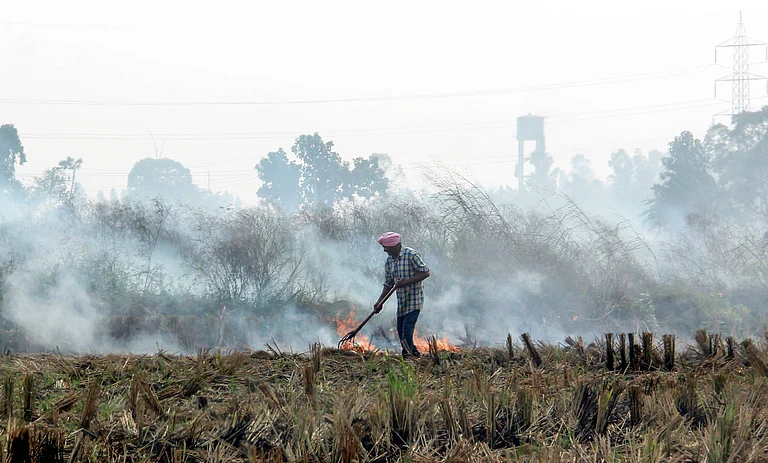
Punjab was asked to fix “in-situ management measures”, ensure timely “supply of balers and CRM”, step up the “Parali Protection Force”, and promote biomass co-firing.
Haryana was told to review CRM machinery, create “storage of the Bales” with fire-safety and insurance, and deny incentives to farmers resorting to burning.
Both states must intensify evening patrols, deploy flying squads in hotspot districts, and follow CAQM’s real-time monitoring system.
Punjab and Haryana have been instructed by the Commission for Air Quality Management (CAQM) to strictly implement agricultural residue management procedures and guarantee zero stubble burning during the upcoming paddy harvest season.
Following thorough assessment sessions with senior authorities, deputy commissioners, district magistrates and police officials from 23 districts in Punjab and 22 districts in Haryana on Thursday and Friday, the directives were issued.
In the CAQM press release statement, action points for Haryana and Punjab were listed separately.
For Punjab, action points include fixing gaps in “in-situ management measures” and ex-situ use of paddy residue, ensuring “supply of balers and CRM on time”, tackling pest-infected areas and waterlogged areas, and coordinating with CAQM for “real-time monitoring”.
Punjab was also urged to increase monitoring through the "Parali Protection Force," guarantee inter-district movement of balers, close gaps in crop residue management equipment availability, and speed up biomass co-firing in thermal power plants.
For Haryana, the focus is on reviewing CRM machinery gaps, developing a “State level strategy” for stubble management across districts, ensuring “storage of the Bales” with fire-safety and insurance measures, penalising farmers who burn stubble by denying incentives, and sensitising ULBs/DCs to stop “open burning of MSW/Biomass in urban areas”.
Haryana was instructed to repair equipment shortages, upgrade paddy straw bale storage facilities, and take tough measures against stubble burning.
The CAQM chairperson, Rajesh Verma, presided over the meetings, which were centred on the states' readiness for the season in accordance with the commission's directives for efficient crop residue management.
According to CAQM, flying squad teams will be stationed in both states' hotspot districts to keep an eye on developments on the ground.
Additionally, a special CAQM cell has been established at Kheti Bhawan in Mohali to supervise rice residue management operations and facilitate coordination between Punjab and Haryana.
Both states were instructed to increase evening patrols to prevent agricultural fires, mobilise crop residue management equipment in accordance with harvesting patterns, and raise awareness among local authorities about the need to prevent open burning of biomass and municipal solid garbage.
CAQM stressed that stubble burning cannot be allowed and called for incentives as well as penalties to enforce compliance.
With PTI inputs.




























